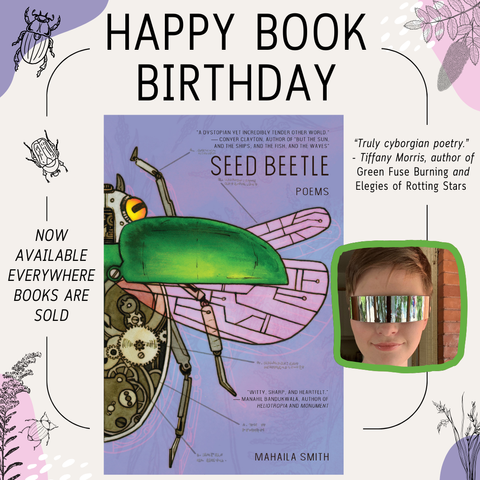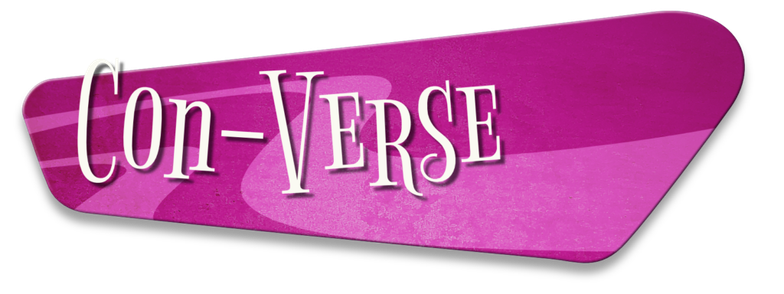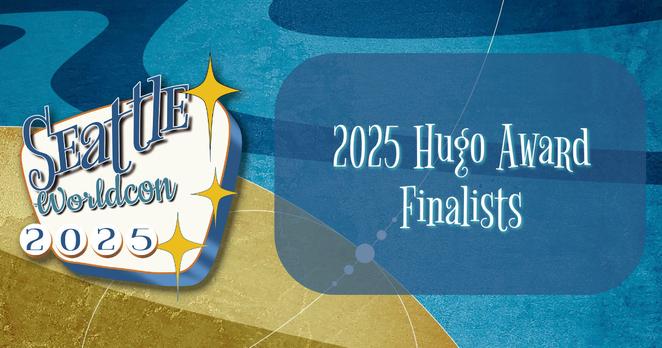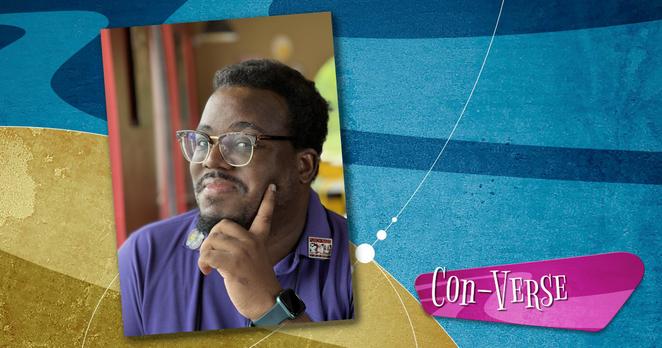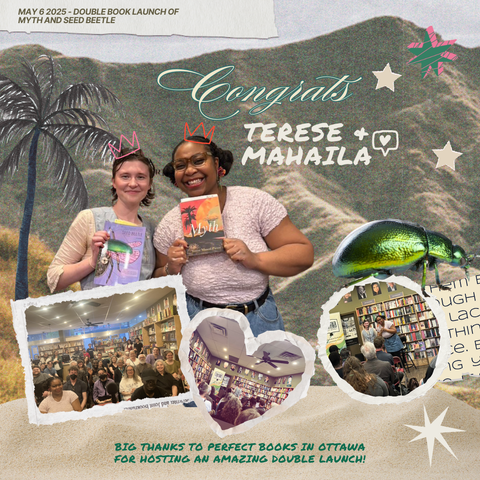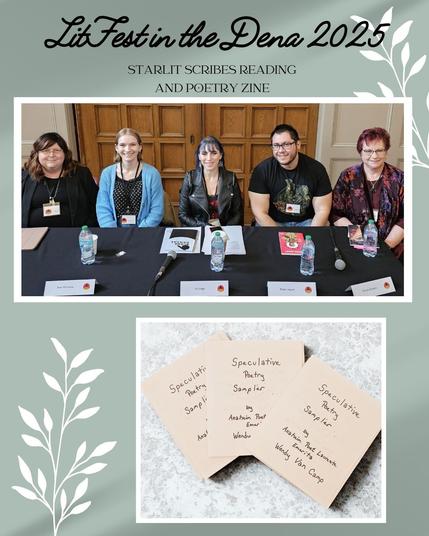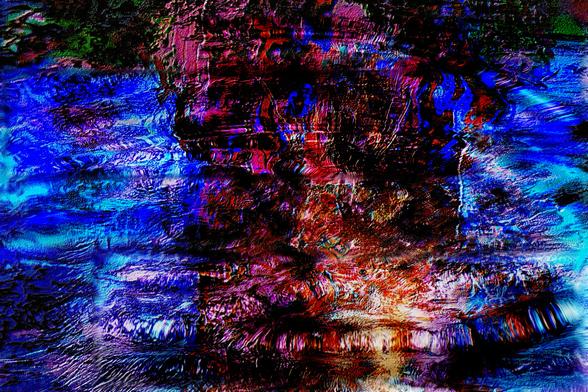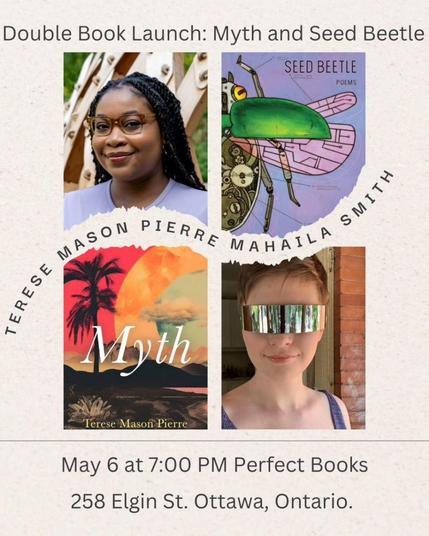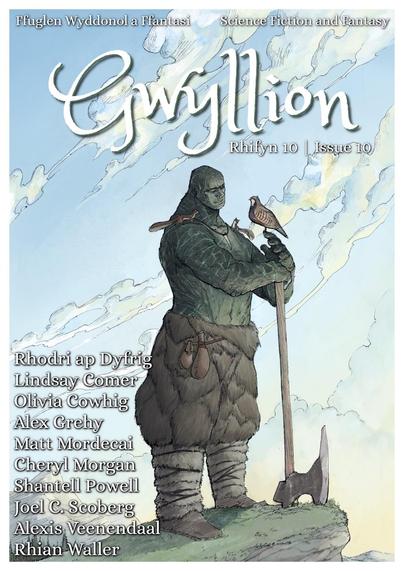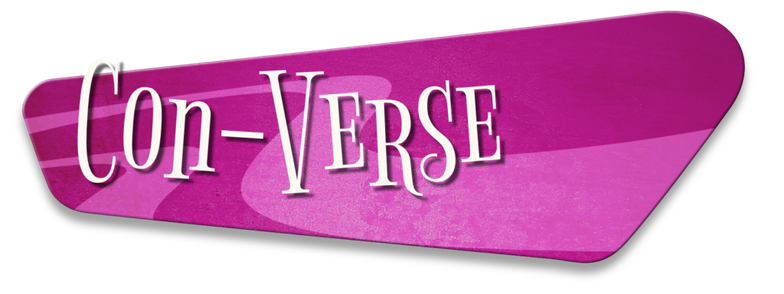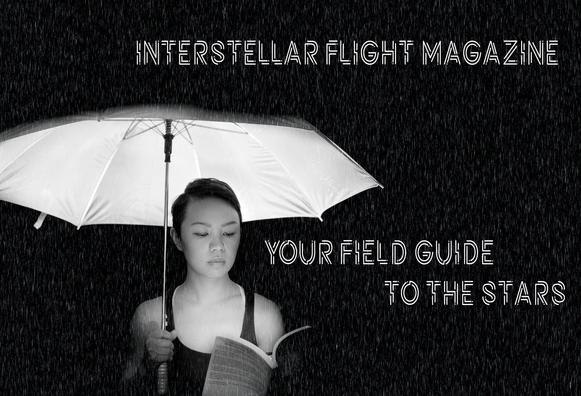Hello, fellow travelers!
I hope you’ve been having a wonderful time digging into the rich banquet of work on the finalist ballot of the Hugo Awards—including the best poem category finalists (but of course I hope you’re reading everything else, too)! Soon we will be tasked with casting our final ballots and determining which among these marvels will go home with its own rocket statue, but until then, I hope you’re also reading with curiosity and joy, and finding new things to delight in as you do.
In our continued chats with some of the brilliant minds in the speculative poetry space, today we’re talking to poet and editor Holly Lyn Walrath!
Holly Lyn Walrath is a writer, editor, and publisher. Her poetry and short fiction has appeared in Strange Horizons, Fireside Fiction, Analog, and Flash Fiction Online. She is the author of several books of poetry including Glimmerglass Girl, The Smallest of Bones, and Numinous Stones. She holds a B.A. in English from The University of Texas and a Master’s in Creative Writing from the University of Denver. In 2019, she launched Interstellar Flight Press, an indie SFF publisher dedicated to publishing underrepresented genres and voices.
How did you get into writing speculative poetry?
It’s not so much that I got into writing speculative poetry but that it was in me from the beginning. I’ve always loved anything speculative—from robots to fairies to slasher films. And I was always writing poetry, as far back as my teenage years, where most of my inspiration came from indie rock music. It wasn’t until I realized I could put the two together that I found my voice as a writer. Something about the speculative lens opened a hard place in my heart. Edward Hirsch says that poetry comes out of dark underground forces, and I’ve always thought of my love for dark poetry as a way of shining the light on those mysterious creative forces in our hearts that we don’t quite understand.
What do you enjoy about speculative poetry?
I like to say that speculative poetry is a poetics of the accessible. Which means that anyone can write a speculative poem. You don’t have to have any formal training. You don’t have to know that much about poetry. A ton of new writers start out writing poetry. There’s no one structure to learn; there’s no wrong or right way to write a speculative poem. When folks stop by my booth at book fairs and they say, “I don’t read much poetry,” I like to push a speculative poetry book into their hands and watch as their eyes light up when they read, realizing that everything they love as a fan can be put into an enjoyable, accessible format. But more than that, speculative poetry is a prime locus of access for marginalized voices. Whether its queerness, disability, race, or gender, the speculative poem can be a vessel for exploring the other.
As a publisher and poetry editor, what are your thoughts about the niche that speculative poetry collections occupy in the genre publishing space?
Most readers in the SFFH (science fiction, fantasy, horror) genre spaces encounter poetry as
individual poems, alongside fiction in popular magazines or anthologies. Most of the speculative poets I encounter haven’t thought about putting together a collection because the focus is on novels. There are no agents for speculative poetry. Writers get pressed into fiction because there are so few good quality speculative poetry publishers. I could talk about this all day, but I think primarily we really need more indie publishers and authors. That’s where the true transgressive work is happening. The works of poetry that are getting published are truly radical and fantastic books. As a whole though, the community needs way more support than it’s getting. I think one of the best things a poet can do for their work is start putting together a collection because books reach a much wider audience. It widens the scope and gives the poet something to hand to a reader. There’s a lot of value in the conversation between poems that happens in a collection, and having that book can be career-altering.
You regularly facilitate workshops about writing poetry of all forms, including erasure poetry. What do you wish more first-time poetry writers knew about writing and reading poetry?
My writing motto is “write what you love; love what you write.” I truly believe there isn’t a wrong or right way to write, there’s just the way that works for you. We are not here to write poetry as a money-making scheme. A poem is art distilled. The value is in the connection between the reader and the writer. So many new poets I meet are anxious about getting it right: Is this good? Is this too personal? Is anybody going to read this? I guess I want the new poet to know: Yes, you can do this; yes, you should do this; yes, someone is going to need to read your poem.
What is your favourite poem you’ve read recently?
I’m currently writing a Confessional Poetry workshop for April, and I’m revisiting some of the classics. One poem that always surprises me is Anne Sexton’s “Her Kind” from her first book of poems, To Bedlam and Part Way Back, written in 1960 about her ongoing struggles with bipolar disorder. Sexton was a complicated figure, and I think this poem encapsulates how the speculative can be a lens through which to view complex ideas like sexism. It also shows how the speculative poem has a long history beyond just today.
Listen to Holly’s poem “Ghost in the Shell”.
That’s all for this week!
I hope some of you did last week’s homework and read some of the finalist poems aloud—and I hope you discovered something that has struck you even more powerfully in those poems from reciting or hearing them than they did from looking at them. Now, we put those together with emotion and thought, and find ourselves on the other side of journeying with their verse.
Until next time, may tomorrow and your good days always rhyme!
https://seattlein2025.org/2025/04/28/con-verse-chatting-with-holly-lyn-walrath/
#HollyLynWalrath #SpeculativePoetry
